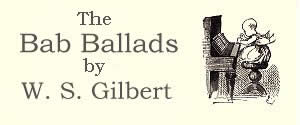You are here: > > "Eheu! Fugaces"
"Eheu! Fugaces"
An old man sitting in church, and praying with all his
breath.
An old man waiting alone for the life that comes of death;
As the parson tells the well-worn tale of heaven and earth:
Of the life that is only death — of the death that is only birth!
Aye, he could patter it all by heart, as a schoolboy hale;
But the old old words are telling a new and a welcome tale.
For the seal of death is set on the old man's wrinkled brow,
And words that once meant little are fraught with meaning now.
Dead in a pauper's grave, long 'ere next Christmas-day,
Here is the end at last — and it seemed so far away!
A careless wilful lad with many an idle plan —
A reckless headstrong youth — a cold indifferent man.
Much such a man as a dozen in every thirteen are;
Day in the fields at work, and night in the ale-house bar.
Nor better nor worse than others, though oftener wrong than right:
He worked with a will in the week, and he fought on Saturday night.
Yet he was often at church, where he made believe to pray,
For the rector furrowed the land for many a mile away:
And the rector's smile meant work, and a home with plenty crowned.
God help the fellow on whom that terrible rector frowned!
And often at church (for the parson proved a useful friend)
He listened perforce to the oft-told tale of the bad man's end,
With a sulky frown on his face as he shuffled a restless limb:
He was young and merry and strong — such words were never for him!
At times the turn of a hymn, or a simple Bible tale,
Chimed with the voice of his soul — a low half-stifled wail —
And roused the frivolous man to a sense of sorrow and pain;
But the long dull sermon always hardened his heart again!
The sermon's just as dull as it was in the days of yore;
But it bears a meaning now which it never possessed before:
The words are strange and long, but he knows their upshot well,
"The good will go to heaven-the wicked will go to hell!"
No scholar was he at his best, and his eyes are dim with
age,
But the Book of the Earth is his, and he reads its open page;
Though rarely glanced at once, no longer idly scanned,
But there's little remains to read, for the end is close at hand.
In every silent page he finds a parable now;
In the plough that furrows the land — in the seed that follows the plough
—
In the snow that covers the grass, and crackles under his tread —
On the grass that covers the mould — in the mould that covers the dead.
| |
Page Created 29 July, 2011
